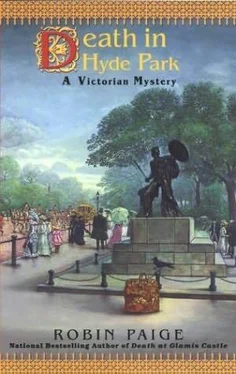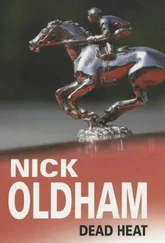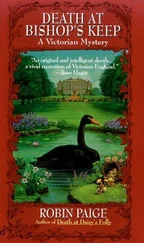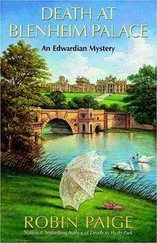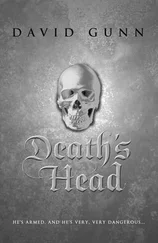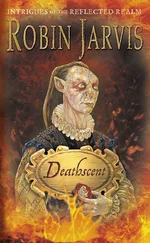Robin Paige - Death in Hyde Park
Здесь есть возможность читать онлайн «Robin Paige - Death in Hyde Park» весь текст электронной книги совершенно бесплатно (целиком полную версию без сокращений). В некоторых случаях можно слушать аудио, скачать через торрент в формате fb2 и присутствует краткое содержание. Жанр: Классический детектив, на английском языке. Описание произведения, (предисловие) а так же отзывы посетителей доступны на портале библиотеки ЛибКат.
- Название:Death in Hyde Park
- Автор:
- Жанр:
- Год:неизвестен
- ISBN:нет данных
- Рейтинг книги:5 / 5. Голосов: 1
-
Избранное:Добавить в избранное
- Отзывы:
-
Ваша оценка:
- 100
- 1
- 2
- 3
- 4
- 5
Death in Hyde Park: краткое содержание, описание и аннотация
Предлагаем к чтению аннотацию, описание, краткое содержание или предисловие (зависит от того, что написал сам автор книги «Death in Hyde Park»). Если вы не нашли необходимую информацию о книге — напишите в комментариях, мы постараемся отыскать её.
Death in Hyde Park — читать онлайн бесплатно полную книгу (весь текст) целиком
Ниже представлен текст книги, разбитый по страницам. Система сохранения места последней прочитанной страницы, позволяет с удобством читать онлайн бесплатно книгу «Death in Hyde Park», без необходимости каждый раз заново искать на чём Вы остановились. Поставьте закладку, и сможете в любой момент перейти на страницу, на которой закончили чтение.
Интервал:
Закладка:
“It was Yuri’s plan, not mine,” Ivan said. “I had nothing to do with it.” He was about to add that he had no idea how a bomb had come to be found in his room, but held his tongue. The comrades could think as they liked about him. And if they liked to think that he was a man of deeds, rather than words only, well, that was their choice. He stood no chance before the British bench, anyway, with or without the aid of the eight-guinea Brownlow. He was a Russian and an Anarchist, and when he was found guilty and had served his sentence, he would be handed over to the Ochrana, the Czar’s secret police, who would arrange for his deportation. Once in Russia, he was a dead man.
And this opened another vast panorama of problems upon which Ivan must exercise his mental faculties. For the past three weeks, he had suspected that he was being trailed by one of the Russian secret agents who prowled London, keeping a watch on the Russian emigres, many of whom had sought refuge in the teeming East End. Ivan had done his best to avoid the man-a tall, thin fellow with a black Vandyke beard, wearing a dark overcoat with a fur collar-but he knew it was a futile effort. Whatever he did, he could not get away from the man. And even if he did, it would be of no use, for now that the Ochrana had located him, they would merely assign another agent to trail him.
In fact, now that he thought about it, it seemed to him quite likely that the explosives found in his room had been put there by a Russian agent, immediately after he was seen to be seized in the raid on the Clarion. The agent would know that Special Branch police would search his rooms and would want to ensure that they find something incriminating. Of course, the Ochrana would prefer to get their hands on him immediately, so it was possible that they might make some sort of arrangement with the British authorities to hand him over-a trade for another prisoner, or even an arranged escape. One had heard of that sort of thing.
Ivan ran his hands through his lanky, dirty hair. Of course, this didn’t explain why a bomb had also been placed in Pierre’s room, since an Ochrana agent was not likely to have any special animosity toward a French Anarchist. Ivan smiled bleakly. Especially an ineffectual French Anarchist, all fierce words and no deeds, whose passion for the Cause blinded him to any real possibility for vigorous action. But there were French secret agents in the City as well (not to mention German and Spanish and Italian and American) and perhaps there had been some sort of collaboration.
However, Ivan did not intend to expend his mental energies on Pierre and his fate. He had to think how best to manage to free himself from this unimaginably tangled web and from the agent who would be waiting to lay hands on him when the Court found him guilty-which would happen, he was sure of it, whatever the efforts of Mr. Eight-Guinea Brownlow.
But Brownlow was to make no such efforts on their behalf, as Pierre Mouffetard learned the next day. Pierre, a dingy, hard-faced man, his jaw patchily smudged with a meager whisker, had also been in jails before, usually on a charge of picking pockets, for that was his criminal trade. But he had never stayed for long, since he or his associates had always managed some early means of egress. He therefore remained unconcerned about his current situation and continued to carry himself with his customary air of blustery self-confidence, even when Nicholas Petrovich came to tell him that Brownlow would not be hired, after all.
The conversation had taken place just an hour ago, in the visiting cage. Nikki said that he had been sent to inform both Pierre and Ivan that the Hampstead Road Anarchists had changed their minds. Instead of helping to procure a defense, they had decided that it would be best for them to disassociate themselves from their jailed comrades. As a messenger, Nikki was clearly uncomfortable with this announcement, and stammered as he said it.
“They… we want to express solidarity with militant action, of course, but we… the group, that is, feels it can’t be reckless.” He colored. “You must take it as you like, Pierre, but they… we have decided to disclaim all connection with you and Ivan. And Adam Gould, too, of course-he’s not a member, anyway. It’s the explosives, you see. Everyone’s nervous.”
Pierre frowned, not so much at the way the comrades had abandoned him, but at the charge itself, which he had heard from Nikki the day before, for the first time. “But I had no explosives in my room,” he said. “I told you that yesterday.”
“That does not alter the fact,” Nikki replied somberly, “that the police say they found a bomb there. And there were the instructions for bomb-making in your pocket.”
“Instructions?” Pierre gave a hard laugh. “That was merely a letter-a French compatriot writing to tell me about a Spanish comrade who built an explosive device of some sort.”
“Doesn’t matter.” Nikki pressed his lips together. “The comrades said that they are sorry, but they know that you, of all people, will appreciate that they must act in their own self-interest.”
Of course they must act in their own self-interest, Pierre thought scornfully, and he would act-as he always did-in his. That was what it meant to be an Anarchist, and whatever else he was (and he was many things), he was an Anarchist at heart. He stared down for a moment at the knot of his long, thin fingers, thinking about the bomb that had been put in his room by-by whom? He frowned, for while his impulsive actions and inflammatory temper had made him many enemies, he could think of none who would have chosen this route to revenge. But Pierre had been in difficult straits before, and things had come right in the end. Things seemed dark indeed, but there would be a way out. And if he could not find one, why, then, he would make one.
So Pierre had merely smiled tightly, asked Nikki to tell the comrades that he appreciated their position, and retired to his cell to consider the matter further. In his considerations, of course, his mind went to Ivan and Adam, in whose rooms the police had also found bombs. Pierre had no special liking for Adam, who was a reformist, not a revolutionary. But he was truly sorry for Ivan, whom he especially admired, for Ivan was both passionate and dedicated and had suffered through many trials, always showing himself worthy. With his training as a printer, Ivan was well on his way to making important contributions to the Cause-far more than he, Pierre, could ever hope to make. Pierre did not possess a great deal of self-knowledge, but he knew enough about himself to recognize that he had made very little of his life, and of the opportunities that had come his way. If he had to do it over again, he would do what Ivan had done: study more diligently, learn a trade, and find a way to do something significant for the Cause.
But there was no use in regret. The past was past, and neither here nor there. For now, there was nothing to do but wait and see what might happen.
CHAPTER ELEVEN
The first thing we do, let’s kill all the lawyers.
William Shakespeare, Henry VI, Part 2Charles took the train up to London early on Monday morning. He disembarked when it reached the Liverpool Street Terminus and found a cab to take him to Sibley House, the Mayfair mansion that had been purchased by his great-grandfather for the family’s use when in London. Charles did not enjoy the pleasures of the City and much preferred his wife’s home at Bishop’s Keep to the London house-or to Somersworth, for that matter, his family estate in Norfolk. Now that his mother was dead, he went less often to Somersworth; at some point, and perhaps very soon, he ought to come to some conclusions about how best to deal with the estate, which was far too large to be conveniently managed. He did not like the idea of breaking it up for sale, for there were the tenants and estate staff to be considered, and besides, he had no need for the money. While he was in town, he planned to talk with his old friend Canon Rawnsley, who had created a new organization he was calling the National Trust. Perhaps the Trust would be the best way to deal with Somersworth.
Читать дальшеИнтервал:
Закладка:
Похожие книги на «Death in Hyde Park»
Представляем Вашему вниманию похожие книги на «Death in Hyde Park» списком для выбора. Мы отобрали схожую по названию и смыслу литературу в надежде предоставить читателям больше вариантов отыскать новые, интересные, ещё непрочитанные произведения.
Обсуждение, отзывы о книге «Death in Hyde Park» и просто собственные мнения читателей. Оставьте ваши комментарии, напишите, что Вы думаете о произведении, его смысле или главных героях. Укажите что конкретно понравилось, а что нет, и почему Вы так считаете.
